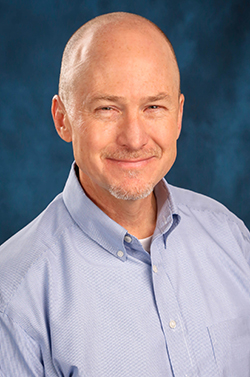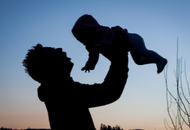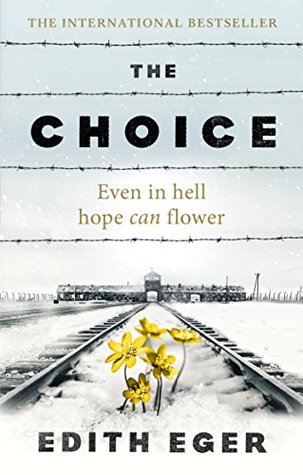Post-traumatic Growth
I read those words written by a local newspaper columnist while working as a social worker in the world of pediatric cancer. During that time, I would sometimes look out the hallway window in the cancer unit and see the cars going back and forth on the interstate. I would think that somewhere out there are four or five families that have no idea the next month they will be here on the unit, their lives turned upside down. Today, maybe their child has no symptoms at all. Or maybe it looks like the flu or a headache or a muscle strain or growing pains. But when the cancer diagnosis is confirmed, these families will be in our world and trying to make sense of their new-found situation — seeking any meaning that can be found in the experience.
One patient was a charismatic teenage boy, the only child of a single mother. He survived cancer, but there were months filled with surgery, chemotherapy, infections, inpatient stays, clinic visits and repeated scans — the challenging twists and turns of treatment. During this time, his mother once commented about how life looked different to her. Priorities were changed and she had a different clarity about what was important both for her and her son. She remarked that I probably heard that all the time. I responded that I heard that kind of reflection sometimes, but not all the time. I affirmed her courageous willingness to consider new ways in the middle of a very challenging time.
A different mother had a toddler daughter with cancer, and sadly her daughter did not survive. Shortly after I met this mother, she shared her history of trauma. As a child, she was sexually abused. She was raped as a teenager and now she was living with an abusive man. However, in the traumatic months of her daughter’s treatment she changed in profound ways. After so many terrible experiences as the victim of trauma, something shifted. Between her daughter’s diagnosis and eventual death, she kicked her abusive partner out of the house, reported him for child abuse and would tell the doctors “no” when she disagreed. The victim role which had defined her was left behind, and she experienced previously unknown confidence and strength. I commented that she was not the same person I met. With a knowing look, she agreed.
At the time, I didn’t have a term for the positive changes that I was privileged to witness in these two mothers. The term that I have since learned is “post-traumatic growth.” It doesn’t happen automatically when trauma occurs and it doesn’t happen for everyone. It also doesn’t come directly from the trauma but rather from the struggle to deal with the trauma. Significantly, post-traumatic growth doesn’t come instead of pain. Pain is one source of growth. Without pain, there would be little motivation for change and no need to find new strength, reevaluate priorities, or develop deeper, more durable ways of making meaning. And for most who do find post-traumatic growth, it’s not an even trade—the growth does not fully compensate for what was lost.
In "When Bad Things Happen to Good People," Rabbi Harold Kushner gives a profound description of posttraumatic growth following the death of his son:
"I am a more sensitive person, a more effective pastor, a more sympathetic counselor because of Aaron’s life and death than I would have ever been without it. And I would give up all of those gains in a second if I could have my son back. If I could choose, I would forego all the spiritual growth and depth which has come my way because of our experiences, and be what I was 15 years ago, an average rabbi, an indifferent counselor, helping some people and unable to help others and the father of a bright, happy boy. But I cannot choose."
Post-traumatic growth is a fairly new term for an old reality. Sometimes in the experience and struggle with terrible loss, we learn important insights, find new strengths and develop greater compassion for others and ourselves. The price may always be unacceptably high, but we experience growth nonetheless. Because we, also, cannot choose.
“Nothing good comes from cancer. Nothing ever will.” I don’t know how I would respond to those words if I read them for the first time today, but I do know how I responded then. I felt angry as they didn’t describe what I was seeing in the families with cancer that knew. These families worked so hard to find meaning and purpose for their lives, and sometimes—many times—they grew.
There is a wonderful metaphor for post-traumatic growth in the Harry Potter books and movies. In the fifth book and movie, "Harry Potter and the Order of the Phoenix," Harry sees creatures he has never seen before. They look like horses with bat-like wings and skeletal bodies. However, his best friends cannot see these creatures and he wonders about his own sanity. Over time, he learns that the creatures are called “thestrals,” and there are others who can see them, too. He learns that they are magical creatures that can only be seen by those who have seen death. In the fourth book and movie, "Harry Potter and the Goblet of Fire," Harry sees a friend die, and now he can understand something about life that was always there, but he could never see before.
Ask someone who has experienced significant loss if there is something they understand about life or themselves that they didn’t know or understand before. Most whom I have met would respond in the affirmative, and many would be willing to elaborate on what they have learned and how they have changed.
Many of us grieving people have learned to see “thestrals” even though we’d rather not. Although we didn’t and wouldn’t choose our losses, we have grown. And in our growth, we have the opportunity to offer more healing for others and for ourselves. In doing so, we honor what and who we have lost more deeply.

Greg Adams, LCSW, ACSW, FT
Program Coordinator
Center for Good Mourning
[email protected]
Other Voices
We are hearing the voices of those who have experienced the loss of a parent, spouse, sibling, or child. But what about the death of a first love before it had an opportunity to mature? Kavita Varma-White generously provides us with an opportunity to better understand this kind of loss. Keep Reading...






